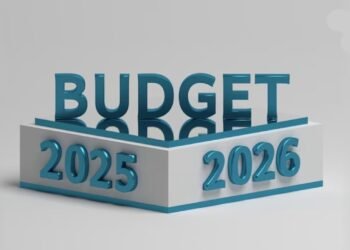The global sovereign debt roundtable is expected to meet tomorrow, Friday 9th June, 2023 to focus on technical talks aimed at discussing issues such as arrears and comparability of treatment for countries in default.
This would be the third encounter for the group that includes representatives of the International Monetary Fund (IMF), the World Bank and current Group of 20 (G20) major economies leader India after one in Bengaluru in February followed by an April meeting in Washington, during the IMF-World Bank spring meetings.
The initiative was formally launched late last year amid continued delays in securing debt treatment for countries in default such as Zambia, Ghana and Sri Lanka, that are in talks with a wide variety of stakeholders like the Paris Club, India and China – the world’s largest bilateral creditor.
As part of the technical talks, the latest meeting will focus on cut-off dates, reports said, as consensus is needed on the starting date from which new loans are excluded from a restructuring.
However, it is unclear who would participate in the tomorrow’s meeting. Meanwhile, bilateral creditors representatives participated in previous meetings, as well as government officials from countries that have requested debt treatments under the G20 Common Framework. Some private sector creditors have also been part of the talks in both Bengaluru and Washington.
Rising Debt Vulnerability
Amid rising debt vulnerability being faced by low and middle-income countries, the Global Sovereign Debt Roundtable (GSDR) has agreed on urgently improving information sharing, including on macroeconomic projections and sustainability assessments, at an early stage of the debt restructuring processes.
The meeting will discuss the role of Multilateral Development Banks (MDBs) in these processes through the provision of net positive flows of concessional finance. The International Development Association’s (IDA) provision of positive net flows and the ex-ante implicit debt relief through increased concessionality and grants to countries facing higher risks of debt distress will be welcomed.
During the first G20 Finance Ministers and Central Bank Governors (FMCBG) meeting in February, the urgency to address debt vulnerabilities in low and middle-income countries including Sri Lanka was recognized. Sitharaman stressed on debt transparency, information-sharing and clarity on the comparability of treatment, predictability and timeliness of the debt restructuring process, including those for steps involved in the process and ways to assess and enforce.
Discussions focused on the actions that can be taken now to accelerate debt restructuring processes and make them more efficient, including under the G20 Common Framework, according to a statement issued by the roundtable.
It is important to urgently improve information sharing including on macroeconomic projections and debt sustainability assessments at an early stage of the process. Meanwhile, the IMF and World Bank will rapidly issue staff guidance on information sharing at each stage of the restructuring process.
READ ALSO: Washington Announce $150 Million Package For Syrian And Iraqis























